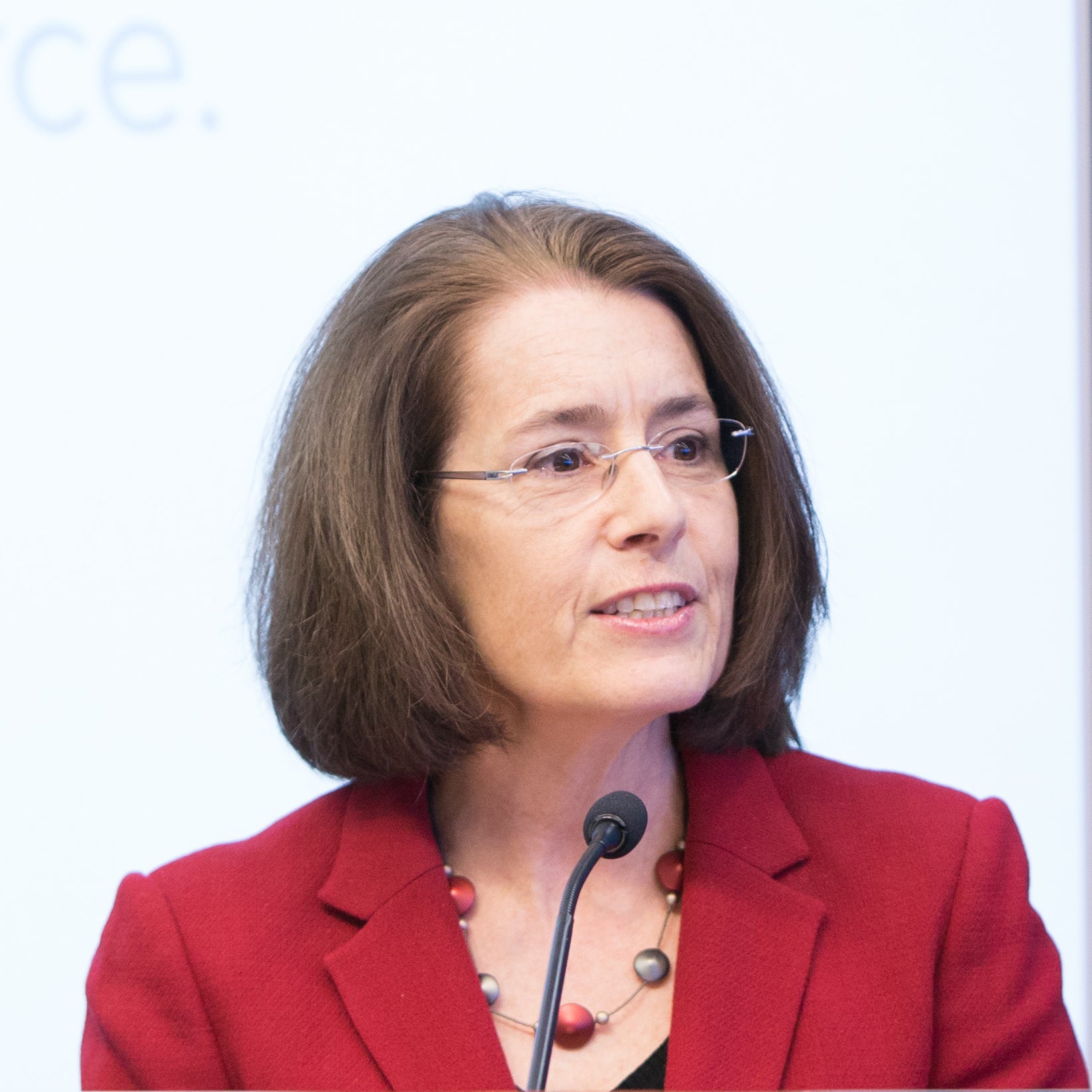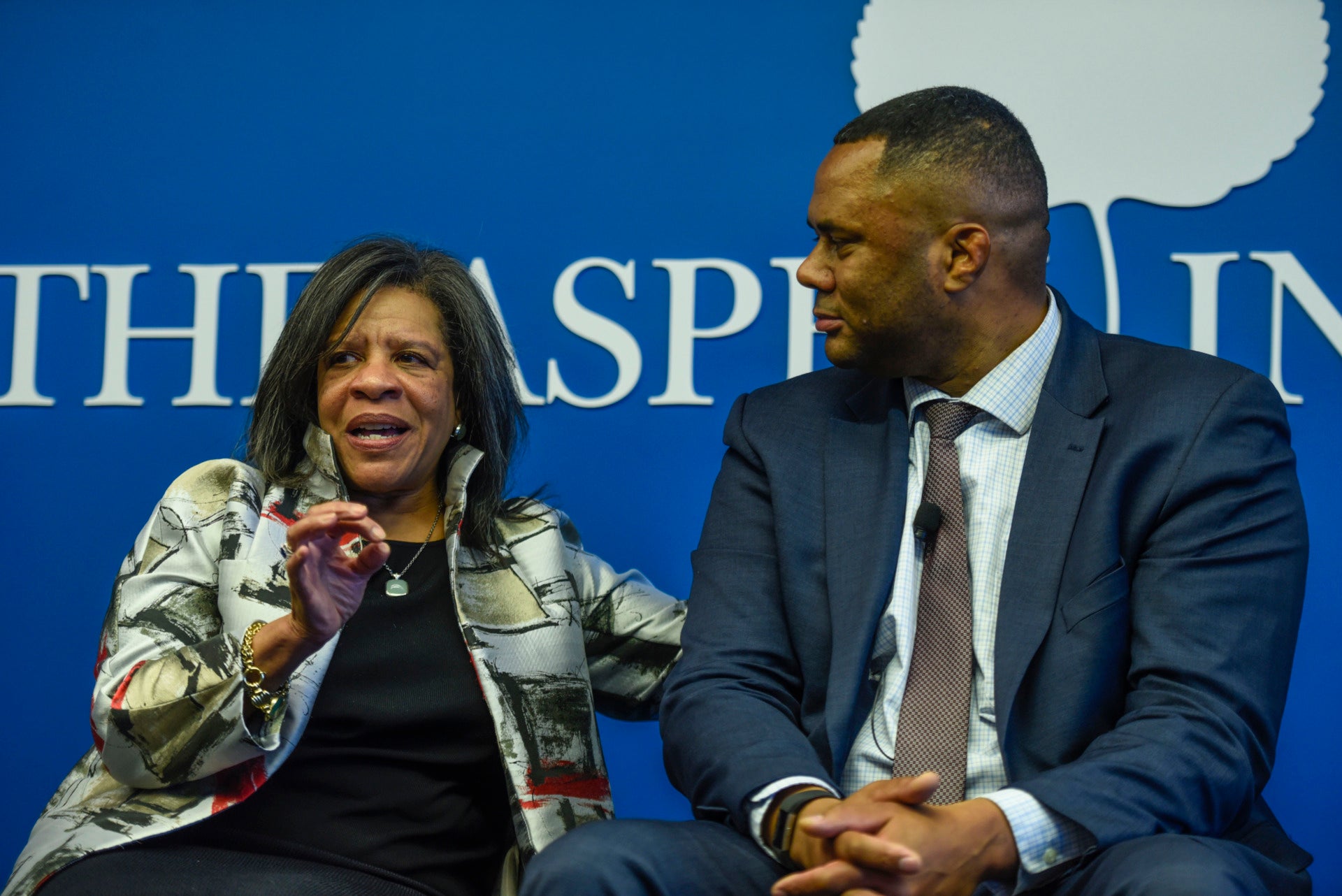Maureen Conway serves as vice president at the Aspen Institute and executive director of the Institute’s Economic Opportunities Program (EOP). EOP works to expand individuals’ opportunities to connect to quality work, start businesses, and build economic stability that provides the freedom to pursue opportunity. Maureen founded EOP’s Workforce Strategies Initiative and has headed up workforce research at the Aspen Institute since 1999. Maureen also curates a public discussion series at the Aspen Institute, Opportunity in America, which brings together voices from business, labor, policy, human services, media, academia, and others to discuss the challenges experienced by many in today’s labor markets and new ideas for addressing these challenges. In addition, Maureen oversees EOP’s leadership development programs, which connect innovators, both within communities and from across the country, to peers working to help low- and moderate-income Americans access opportunity.
Maureen is the author of numerous publications including research reports, case studies, and policy briefs, including co-editing, together with Robert P. Giloth, the book Connecting People to Work: Workforce Intermediaries and Sector Strategies, a collection that brings perspectives from philanthropy, policy, research, and practice together. A featured speaker at national and regional conferences, she is a nationally recognized expert in workforce issues and has been quoted in a variety of news media including The New York Times, The Wall Street Journal, and National Public Radio and her writing has appeared in Fast Company, Politico, Quartz, CNN.com, and other outlets.
Maureen’s previous experience includes consulting for the Organization for Economic Cooperation and Development in Paris and work for the US Peace Corps, where she advised on the design, management, and evaluation of the organization’s economic development programs in Eastern Europe and the former Soviet Union. Maureen holds an M.B.A. from Columbia University, where she was a Samuel Bronfman Scholar, a master’s in regional planning from the University of North Carolina, and a B.A. in economics and mathematics from Holy Cross College.




 " title="Job Quality Newsletter: What Improving Job Quality Means for Black Workers"
alt="Job Quality Newsletter: What Improving Job Quality Means for Black Workers" srcset="">
" title="Job Quality Newsletter: What Improving Job Quality Means for Black Workers"
alt="Job Quality Newsletter: What Improving Job Quality Means for Black Workers" srcset="">
